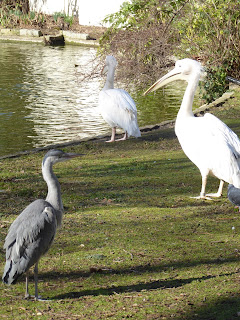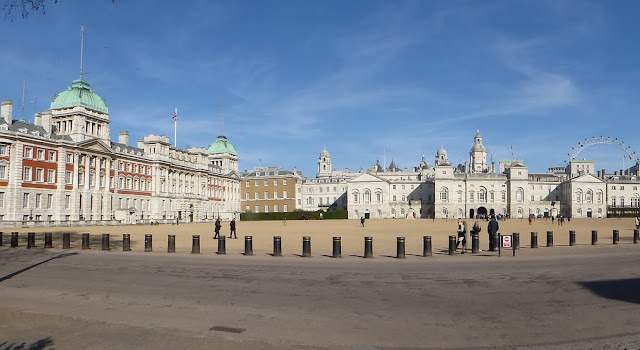You will laugh at this (luckily no photos or video footage) but I went on my first ever cycling lesson on Sunday with my lodger and an old university friend in Regents Park. We hired Boris Bikes at Regents Park and headed up and down the Broad Walk. I ached in so many places the next day, and find that a skill 5 year olds can manage is still out of my reach. I suffered from a number of disadvantages, not least that Boris bike saddles don't go low enough for me to put my feet on the ground. I spent much of the time barely balanced on the end of the seat on my scrotum. As I say, I ached in so many places, some rather unexpected...

I got invited to a dinner where the guest speaker was the TV presenter Jeremy Vine. But I found not only was he guest speaker but also seated next to me, so I had dinner with the great man. Needless to say an interesting experience, and we did get a bit of an insight to election coverage. I got the feeling, especially listening to the talk, that the man is a bit of a frustrated stand-up comic (and of course his younger brother, Jeremy Vine, is just that). Best line however came from on of his callers on his radio 2 phone-in, referring to Ed Milliband as being "as much use as a boil on your scrotum." (See above for how painful that could be...)
Interesting subject we discussed was between fact and opinion. His view from many years of broadcasting was that its all opinion, hence the BBC obsession with balance. But I still maintain there is much fact that can be disseminated. True, one cannot predict the future, but one can put claims as to what is going to happen to the test by looking at past performance. Which seemed particularly relevant at an event hosted by investment managers. They don't know what is going to happen either (or they would be a lot more successful in managing my money that they are), but they can show what has happened in the past and so put matters into context, and so show what is LIKELY to happen, or at least what is unlikely. And I feel the BBC often fails to do that, because if something was put in context it would show it up as unlikely and then that would appear to be bias. Any objectivity is taken as being bias. Only fence sitting is allowed, and so they put out two people with opposing views to rant at each other in the name of balance. But we (I) then don't believe either side as they both seem biased. Because they are. Sometimes I know enough to judge who is talking nonsense, but sometimes I don't. At which point the debate is just pointless, or at least only serves to advance the better presenter. I don't want to vote to stay in or leave the EU based solely on who is a better debater.
Was a good evening but with lots to drink. And as it was hosted by my investment manager, had a fairly elderly clientèle. One woman of a certain age, and the only woman on our table, came up to me after dinner and asked if there was a Mrs K. On my reply in the negative she then followed with "So do you like boys or porn?" What happened to small talk and pleasantries about the weather? She then opened up a conversation about breakfast TV with "Well I am a bit racist anyway..." on which I guess she should be congratulated for candour, and it's certainly a variation on "I am not a racist but..." Nevertheless it is a little offputting and makes you wonder what is coming next. What this was leading top was a critique of breakfast TV and a complaint that all the presenters are either black, Indian or Northern. I am afraid it was the northerner that came in for the most stick (although I am not convinced that Geordie is a race...). Still a change from my very politically correct younger friends. Not a refreshing change, but a change.




































































